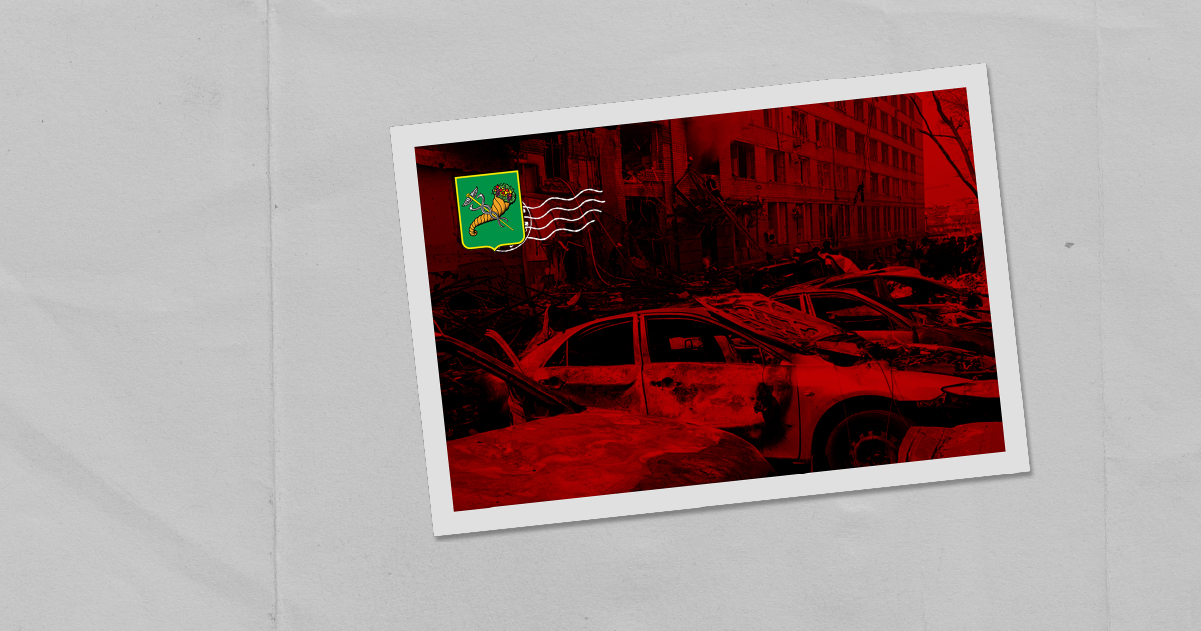Because of the shelling, we didn't have time to get food — so we would spend that day without food": the story of a Kharkiv resident
Vostoc SOS

Kharkiv is a city that suffered from almost the largest number of blows from the first days of the full-scale Russian invasion. Every few hours the air raid siren goes off, people hear the sounds of blasts, exploding shells, and the sirens of ambulances rushing to the wounded or dead.
Like every Ukrainian, Yaroslav has a good memory of everything about February 24, 2022. At 4:42 a.m. that day, he and his wife woke up to explosions: the artillery hit about one and a half kilometers from their house. The panicking family immediately stocked up on food and water. In three days, Yaroslav with his wife and friends began to live in the metro, at the Armiiska station.
"At first, they shelled Saltivka and Mala Rogan. After that, the missiles reached the Maselskoho station, which is the nearest station to us. So we started living in the subway for 3 weeks up until leaving Kharkiv. We left the shelter to go home for a few hours to prepare food, to stand in line in the store, and then back to the shelter,” recalls the man.
In Yaroslav's opinion, the majority was not ready and did not expect that Russia would start a full-scale war. He adds that in the first days of the full-scale invasion, there were cases of elderly people dying of heart attacks.
"They started dying simply because of stress," says Yaroslav.
Soon, the Russians tried to break into the city through Oleksiiivka and Zhuravlivka. At the same time, the rocket fire was becoming more and more dense — cluster shells began to fly to the area where Yaroslav lived, right into the yards. Russian missiles struck civilian infrastructure, as well as near the metro. In some city districts, there was no electricity, water, or gas in the houses. Stores were running out of produce and goods.
"The cars with humanitarian aid did not reach us. Adults, children, and the elderly had to walk several kilometers under shelling and stand in lines for water and food. At this time, there were flights close to us, the sound wave would drown us out. If you don't buy food, you won't survive, it's a risk in any case. Sometimes because of the shelling, we didn't have time to get food — so we would spend that day without food", says the man.
Until recently, Northern Saltivka was one of the most densely populated districts of Kharkiv. Today, it is the most destroyed part of the city.
"There is nothing left of my wife's apartment on Northern Saltivka, half of the house is gone. They hit residential buildings as well as kindergartens," says Yaroslav.
Now the man is in a relatively safe city. Maintains contact with acquaintances who have remained in Kharkiv. He learned from them that nine civilians were killed near his house as a result of a Russian missile attack with prohibited cluster shells.
Since 2014, "Vostok SOS" has been documenting war crimes to ensure justice. If you are a witness or a victim of such a crime, you can report it to the organization at the following numbers:
+38 099 297 64 34 +38 099 736 42 41
Or send your story to e-mail: [email protected] or the Telegram chatbot @documenting_vostok_sos_bot


